All Formats & Editions
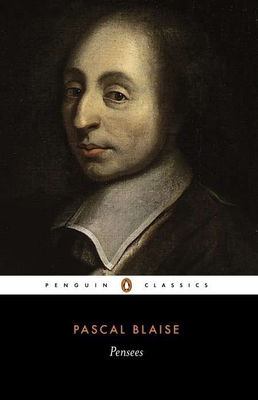
Pensées
Blaise Pascal, the precociously brilliant contemporary of Descartes, was a gifted mathematician and physicist, but it is his unfinished apologia for the Christian religion upon which his reputation now rests. The Pense s is a collection of philosohical fragments, notes...
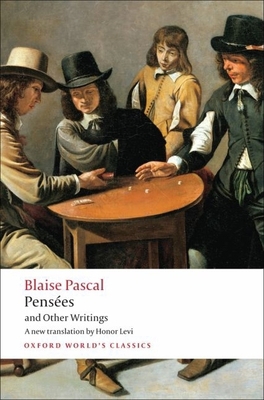
PENSEES & OTH WRITINGS OWC PB

Pensées and Other Writings
For much of his life, Pascal (1623-62) worked on a magnum opus which was never published in the form the philosopher intended. Instead, Pascal left a mass of fragments, some of them meant as notes for the Apologie. These became known as the Pens es, and they occupy a crucial...
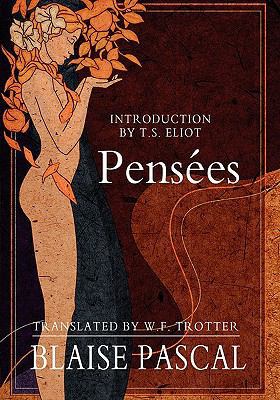
Pensees
For much of his life, Pascal (1623-62) worked on a magnum opus which was never published in the form the philosopher intended. Instead, Pascal left a mass of fragments, some of them meant as notes for the Apologie. These became known as the Pens es, and they occupy a crucial...

Pascal's Pensees
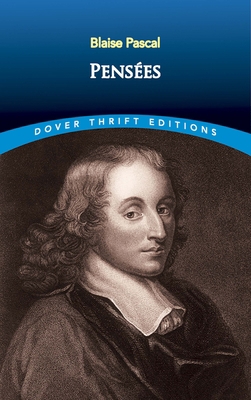
Pensées
"I know of no religious writer more pertinent to our time." -- T. S. Eliot, Introduction to Pens es
"Men despise religion. They hate it and are afraid it may be true," declared Pascal in his Pens es. "The cure for this," he explained, "is first to show that religion...
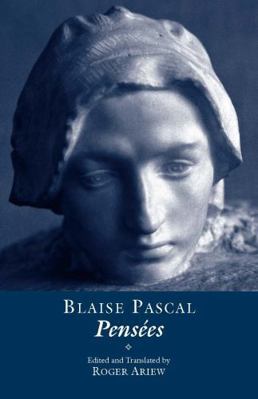
Pensées
This eloquent and philosophically astute translation is the first complete English translation based on the Sellier edition of Pascal's manuscript, widely accepted as the manuscript that is closest to the version Pascal left behind on his death in 1662. A brief history of the...
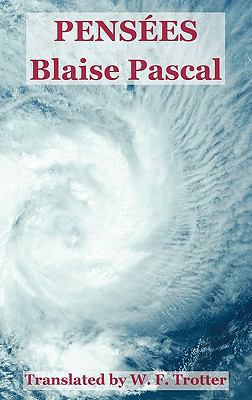
Pensees
![Pensees [French] 2253160695 Book Cover](https://i.thriftbooks.com/api/imagehandler/l/1DBBE1C14D2BFE443214171904525756ADE91CD7.jpeg)
Pensees [French]
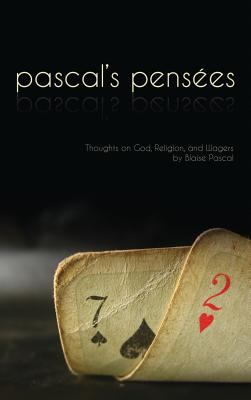
Pensees: Pascal's Thoughts on God, Religion, an...
Blaise Pascal set out to produce a monumental work of Christian apologetics but his untimely death meant that only his fragmentary notes--his thoughts--would be passed on to future generations. The 'random' notes of most people would not be worth preserving; not so with Blaise...
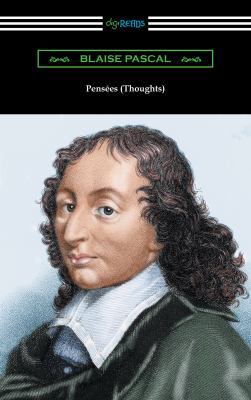
Pensées (Thoughts): [Translated by W. F. Trotte...
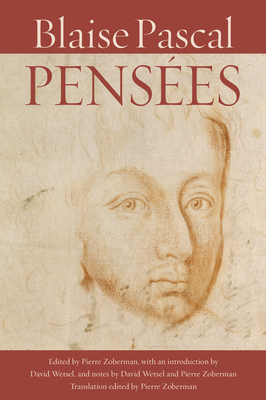
Pensees
Blaise Pascal (1623-1662) was a French mathematician, physicist, and religious philosopher, who laid the foundation for the modern theory of probabilities. The Pens es are made up of some 800 fragments, that have proven to be an enduring masterpiece since their initial publication...
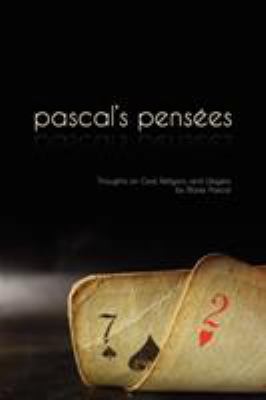
Pensees: Pascal's Thoughts on God, Religion, an...
Blaise Pascal set out to produce a monumental work of Christian apologetics but his untimely death meant that only his fragmentary notes--his thoughts--would be passed on to future generations. The 'random' notes of most people would not be worth preserving; not so with...

Pascal's Pensees
![Pensées [French] 1517447003 Book Cover](https://m.media-amazon.com/images/I/41rGXn0N2oL._SL500_.jpg)
Pensées [French]
Ce livre un essai publi titre posthume de Blaise Pascal, issue de plusieurs papiers retrouv s et rassembl s apr s sa mort. Le th me principal de cette oeuvre est une apolog tique c'est- -dire la d fense de la religion chr tienne contre les sceptiques et les libres-penseurs...
![Pensées [French] 2081366657 Book Cover](https://i.thriftbooks.com/api/imagehandler/l/DE20028861F547E2B0BA9EE45E84DB54C30410BF.jpeg)
Pensées [French]
![Pensamientos (Spanish Edition) [Spanish] 1539544451 Book Cover](https://i.thriftbooks.com/api/imagehandler/l/D352C67CA4C355D42244370D54012C91B6F03712.jpeg)
Pensamientos (Spanish Edition) [Spanish]
En los Pensamientos est presente la reflexi n de Pascal sobre la condici n humana y las relaciones de la misma con Dios. Aunque su meditaci n no es cient fica, s lo es su constante referencia al modo de pensar. Su m todo y punto de partida es el coraz n, y lo razonable consiste...
![Pensamientos (Pensées) (Spanish Edition) [Spanish] 1541039904 Book Cover](https://i.thriftbooks.com/api/imagehandler/l/390BD415B418CFB0EFB387C3781D5820A156428D.jpeg)
Pensamientos (Pensées) (Spanish Edition) [Spanish]
Los Pens es (literalmente, "pensamientos") fue una defensa de la religi n cristiana escrita por Blaise Pascal, el renombrado fil sofo y matem tico del siglo XVII. La conversi n religiosa de Pascal lo condujo a una vida de asceta, y los Pens es fueron de varias maneras la obra...

Pascal's Pensées
It might seem that about Blaise Pascal, and about the two works on which his fame is founded, everything that there is to say had been said. The details of his life are as fully known as we can expect to know them; his mathematical and physical discoveries have been treated many...
![Pensees (In French) [French] 2876284154 Book Cover](https://m.media-amazon.com/images/I/51mYePLZETL._SL500_.jpg)
Pensees (In French) [French]
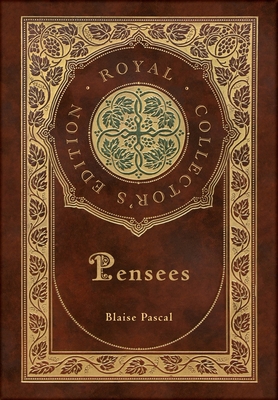
Pensees (Royal Collector's Edition) (Case Lamin...
Pensees, or thoughts, is a collection of fragments on theology and philosophy written by 17th-century philosopher and mathematician Blaise Pascal. Pascal often examined the same event or example through many different lenses. Pascal's religious conversion led him into a life...

Pascal's Pensees - A justification of Christian...
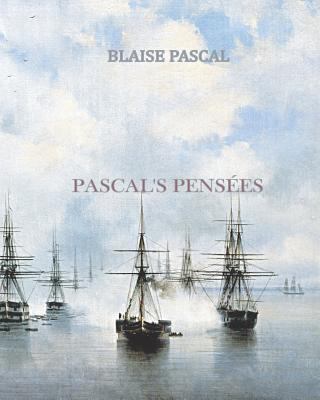
Pascal's Pensees
![Pensées De Blaise Pascal: Avec Les Notes De Vol... [French] 1017843392 Book Cover](https://i.thriftbooks.com/api/imagehandler/l/325E9122870E64A9B81E7003D2BF5CA6797AE31F.jpeg)
Pensées De Blaise Pascal: Avec Les Notes De Vol... [French]
![Pensees [French] 2812401176 Book Cover](https://m.media-amazon.com/images/I/31wzOWGqgmL._SL500_.jpg)
Pensees [French]
A work which is also a universe in itself, Pascal's Pensees were a success in 1670 and that success has never diminished.



